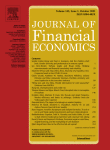Music Sentiment and Stock Returns Around the World
Abstract
This paper introduces a real-time, continuous measure of national sentiment that is language-free and thus comparable globally: the positivity of songs that individuals choose to listen to. This is a direct measure of mood that does not pre-specify certain mood-affecting events nor assume the extent of their impact on investors. We validate our music-based sentiment measure by correlating it with mood swings induced by seasonal factors, weather conditions, and COVID-related restrictions. We find that music sentiment is positively correlated with same-week equity market returns and negatively correlated with next-week returns, consistent with sentiment-induced temporary mispricing. Results also hold under a daily analysis and are stronger when trading restrictions limit arbitrage. Music sentiment also predicts increases in net mutual fund flows, and absolute sentiment precedes a rise in stock market volatility. It is negatively associated with government bond returns, consistent with a flight to safety.
JEL Classification
Keywords
David Hirshleifer was the editor for this article." We thank an anonymous referee, the editor, Azi Ben-Rephael, Henk Berkman, Justin Birru, Ilan Cooper, Zhi Da, Michał Dzieliński, Paul Gao, Diego Garcia, Mark Kamstra, Lisa Kramer, Alok Kumar, Trevor Young, Avi Wohl, Harold Zhang, and participants at the China International Conference in Finance, Future of Financial Information conference, Southwestern Finance Association, Spanish Finance Association, Western Economics Association, French Finance Association, and the University of Auckland for helpful comments. We thank William Austin for providing excellent research assistance. Financial support from the Faculty of Business, Economics and Law, Auckland University of Technology (Research Grant RP2020) is gratefully acknowledged.

